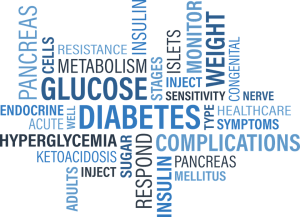You can tell a lot about a person by looking at their blood. Whether you’re type A, B, AB, or O, that red river flowing through your veins can reveal a variety of health conditions. The only problem is, if you’re not running the right tests, you may have diabetes, fatty liver, or a thyroid disorder—and never know it.
“I get a blood test with my annual physical, so I’m good, right?”
Not necessarily. A general practitioner may order a complete blood count (CBC), but from a whole-body health perspective, that tests is actually quite incomplete. To uncover many serious health issues—the conditions causing your unexplained symptoms, you need these six blood tests yearly.
1. High-sensitivity C-reactive Protein (hs-CRP)
Considering that one of every three deaths in the U.S. is due to cardiovascular disease, preventing it with a test would seem to be no-brainer. hs-CRP does just that by analyzing your levels of C-reactive protein (CRP), which increase with inflammation and infection. By identifying low levels of inflammation, the results help gauge your risk of heart attack or stroke.
2. Blood sugar
Your blood should have a nice balance of sugar. High blood-sugar levels can cause diabetes, and low levels can lead to dementia, coma, or death. Fortunately, two tests monitor the equilibrium: glucose and hemoglobin A1C. Glucose measures your immediate sugar levels, while hemoglobin A1C is the average over the last three months. Together, they can offer early detection of a wide range of conditions.
3. Ferritin
Your body uses much of the iron from food to make oxygen in the blood, but it also stores it for times when your diet is lacking. That stored iron is called ferritin, and your thyroid and many other systems depend on it to function. Too much can indicate anything from liver disease to an overactive thyroid, and too little can lead to anemia, exhaustion, and headaches.
4.Thyroid function
Virtually every tissue in your body is affected or regulated by the thyroid. Without proper thyroid function, every system in your body slows down as it directly affects heart rate, memory, energy, cholesterol levels, muscle contraction and relaxation, hair and skin texture, bowel function, fertility, menstrual regularity, mood, and body weight. Your conventional doctor may run one test to check yours, but nine tests are recommended: TSH, Total T4 and total T3, Free T4 and Free T3, Reverse T3, and T3 Uptake.
5. Cholesterol
While there is some disagreement among the medical community as to how much cholesterol is too much, knowing your levels can be helpful. Not only can results show whether diet changes are in order, but they can be a warning sign that your body is shifting in the wrong direction. For instance, elevated triglycerides are a sign your blood sugar may be out of whack.
6. Liver function
The liver is your body’s detox organ, helping to remove toxins, store energy, and digest food. Because liver-function tests aren’t always a part of a regular checkup, you may not know how well yours is working. Two tests, aspartate aminotransferase (AST) and aspartate transaminase (AST), can help detect signs of liver damage, including fatty liver, hepatitis, and cirrhosis.
Invest in Your Health
Your unexplained symptoms may persist or worsen without proper testing. And even more worrisome, you may have no symptoms while a disorder runs rampant. Unfortunately, your conventional doctor is held back by insurance companies that only pay for tests considered “medically necessary,” and many of these tests don’t qualify. But we think your health deserves more proactive care. Getting the tests you need can prevent you from falling victim to a plethora of diseases and health disorders, which often come with red flags and warnings before they manifest. Let Twin Cities Metabolism protect and enhance your health.
Ready to take charge of your health? We’re ready to help. Get in touch.




